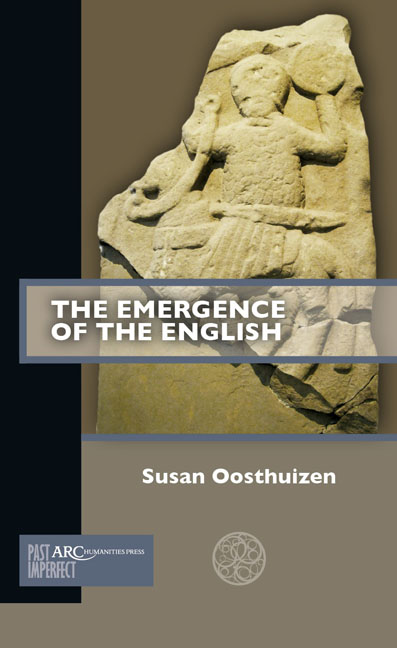Chapter 4 - Another Perspective
Published online by Cambridge University Press: 20 November 2020
Summary
The earlier parts of this book have argued that explanations have failed in which the emergence of the English is predicated on the arrival in England of “the Anglo-Saxons.” Chapter 2 suggested that many aspects of late fourth-century Romano-British administrative structures, institutions, social relationships, language, economy, and material culture could still be recognized in the considerable intricacy of the post-imperial world. Aspects of Romano-British material culture and craftsmanship, once thought to have been almost entirely replaced by the mid-fifth century, continued to influence one or another form of artifact to a greater or lesser extent from one region to another. Most of the island's population, descended from its earlier inhabitants, continued to exploit the same landscapes in much the same ways as their ancestors had done over the preceding centuries, their agricultural livelihoods possibly stimulated rather than depressed by the removal of Roman taxation. Incomers from across Europe, north Africa, and the eastern Mediterranean were assimilated into their communities. On the other hand, there was also significant innovation—in material culture, whose form took on many north-west European characteristics; in the identification by the mid-sixth century of the people of England as Angli, who spoke a language, English, that was dominant by the same period; and in the restructuring of imperial administrative and territorial units in a hierarchy of folk territories. The degree of continuity varied by region, by level of organizational complexity, and in localized disparities between the rapidity and intensity of adaptation and innovation. Interwoven with adapting tradition, the pace, extent, and force of change and transformation were as influenced by geography, by sector, and by scale. Romanitas in Wales seems gradually to have evolved into a form of Britishness that absorbed the Roman legacy of territorial organization, property rights, and language. In the east, the early seventh-century kingdoms of Kent, East Anglia, and Lindsey also developed from Romano-British administrative divisions but Old English was becoming their dominant language. Chapter 3 made a case for irreconcilable flaws in models based on the supposedly superior cultural characteristics of Germanic incomers that enabled them to take advantage of a political void created by the withdrawal of imperial troops and administration.
- Type
- Chapter
- Information
- Emergence of the English , pp. 93 - 136Publisher: Amsterdam University PressPrint publication year: 2019



